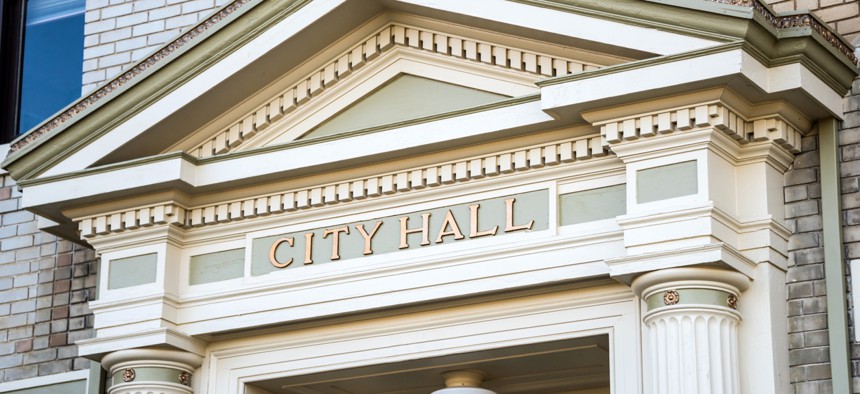Across the US, City Buildings Begin to Reopen

istock.com/Juanmonino
Some are opening their doors fully, others are beginning with appointment hours. Multiple weddings took place at San Francisco's city hall last week.
Last week, San Francisco Mayor London Breed presided over four weddings inside city hall as the building reopened to the public for the first time in more than a year. Witnesses were permitted for each ceremony, seated 6 feet apart.
“I was filling city hall with love,” Breed said in a video of the event. “How about that?”
The building’s reopening also marked the beginning of the city’s celebration of Pride Month, celebrated each June to honor the turning point of the gay rights movement in the United States. The timing, Breed said in a statement, heralded a sort of double observance.
“The day also marks the first day that we are opening the doors to all public services that had been offered remotely during the pandemic,” she said. “This is a great day to celebrate both our pride for our city and for the LGBTQ community.”
As Covid restrictions continue to ease and vaccination rates climb, many counties and cities across the country are reopening facilities to the public for the first time since early last year. Some places, including Boston and Durham, North Carolina, have phased those reopenings, beginning with appointments only during limited hours with plans to expand to full-time capacity at a later date.
Others began by inviting city employees back on-site, with buildings reopening to the general public several weeks later. In Cleveland, city workers were due onsite Monday, with plans in place to reopen city hall to the public on July 6 with “enhanced security requirements.”
Those plans will remain tentative, said Mayor Frank Jackson, and will depend entirely on the city’s health metrics, including vaccination rates and the number of new cases of Covid-19.
“Despite the ongoing decline in new Covid-19 cases, the city will continue to closely monitor Covid-19 data,” Jackson said in a statement. “If new cases, hospitalizations and/or deaths begin to rise, we will revisit the decision to reopen. We must continue to be vigilant and use the measures we know have been effective–get your vaccine, wash your hands and social distance. The pandemic is not over.”
Other cities will simply reopen fully on future dates. For example, Sandy Springs, Georgia, a suburb of Atlanta, will open its city hall and performing arts center to “pre-pandemic levels of service” on Aug. 1, Reporter Newspapers reported. In Roseville, Minnesota, city hall will reopen to both staff and residents on June 21.
“It was a long time coming, but with vaccination rates rising and related Covid-19 metrics falling to their lowest levels since the early days of the pandemic, city officials agreed the time was right to reopen city hall,” the city, a suburb of the Twin Cities, said in a statement. “When city hall reopens to the public, residents and businesses will have the option to conduct business online or visit city offices in person to drop off documents, complete transactions, attend meetings and obtain information.”
But in other cities, buildings remain closed. While Dallas describes itself as “open,” “city hall is CLOSED unless you have an appointment,” according to its website. Baltimore has also set no date for reopening its facilities, with officials saying in a June 4 memo that the pandemic has likely altered the future of in-person services for the city.
Returning to service delivery for residents, City Administrator Chris Shorter wrote, does not necessarily require “returning to the status quo scenario where all staff report on site 100% of the time,” according to the memo, obtained by Baltimore Brew.
Not Business as Usual
That sort of hybrid model may persist in other cities as well, according to the results of a survey of local leaders conducted earlier this year by a group of organizations that work with local governments, including Route Fifty and The Atlas, both owned by GovExec.
Ninety percent of respondents said they expected forms to remain digital, for example, while 87% said they thought residents would be able to continue to pay fees and bills online. Other permanent changes include digital permitting (cited by 84% of respondents), community engagement (83%) and citizen requests (81%).
“It’s clear that local government and public service delivery will look a lot different because of Covid-19,” according to a report on the survey results. “While there are still many challenges ahead as local government organizations adjust to the new normal, there are early signs that local governments will come out of this stronger, smarter, and more sustainable.”
Kate Elizabeth Queram is a senior reporter for Route Fifty and is based in Washington, D.C.
NEXT STORY: Rocky Mountain Forests Burning More Now Than Any Time in the Past 2,000 Years





